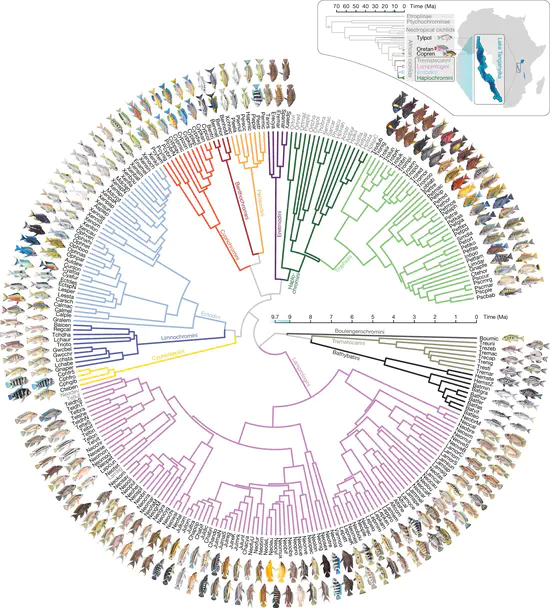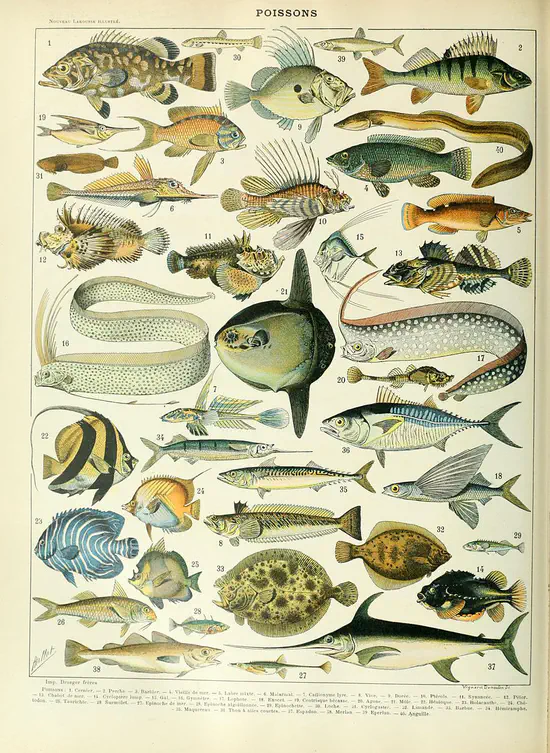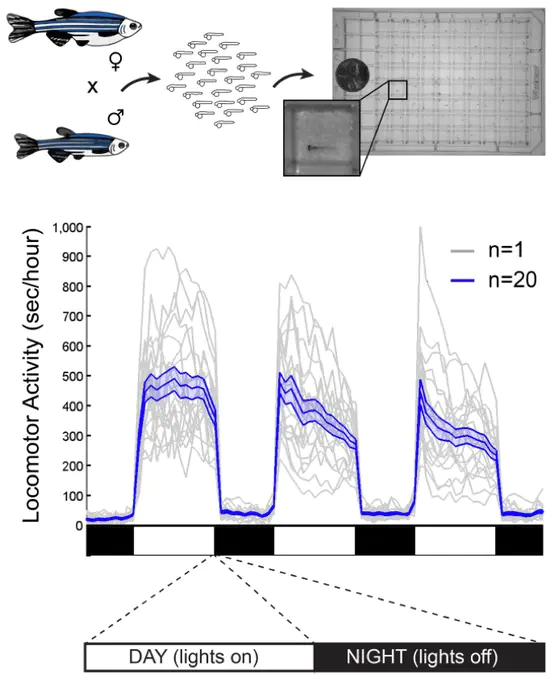Research Overview
The biological mechanisms that regulate sleep are conserved across vertebrates, yet sleep displays remarkable variation both across and within species. Why do animals display remarkable variation in sleep, and what genes and cell types drive such variation?
We study the evolution and genomics of sleep variation across fish animals using a two-pronged macro- and micro-evolutionary approach.

Micro-evolutionary comparisons across Lake Tanganyika cichlid fishes
Cichlids represent the most extraordinary example of a vertebrate explosive adaptive radiation — approximately 2000 species have evolved within the last 10 million years in the Rift Valley Lakes of Africa. In these lakes, cichlids have diversified in diet, body size, mating behaviours, colouration, and habitat preferences. We have recently demonstrated that these cichlids display incredible diversity in sleep-related behaviours (sleep timing, sleep duration).

Macro-evolutionary comparisons across bony and cartilaginous fish, and across all vertebrates
What is the evolutionary history of sleep timing in fish and other vertebrates? What genomic, ecological, or paleontological events are associated with shifts in sleep timing in over >400my of vertebrate evolution?

Identifying and characterising new sleep genes
We use aim to use a combination of traditional model organisms, as well as functional genomic, behavioural, molecular, and circuit based techniques to characterise novel sleep genes identified through our evolutionary comparisons.